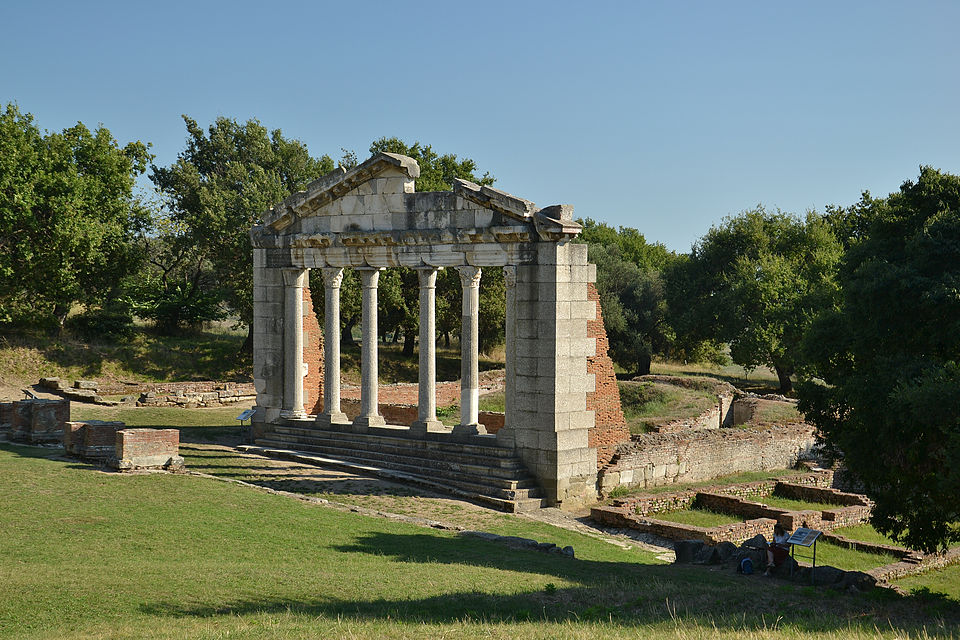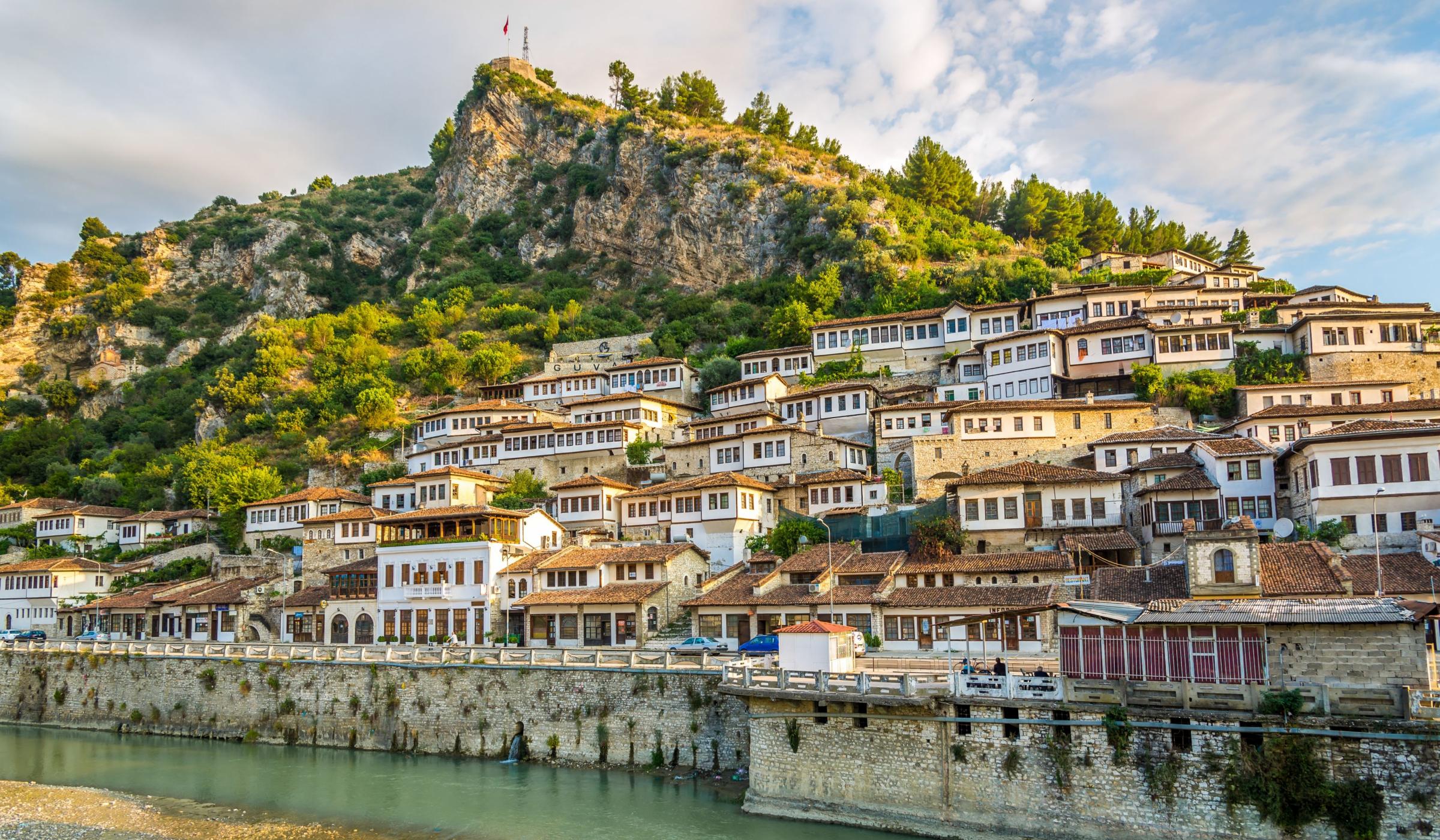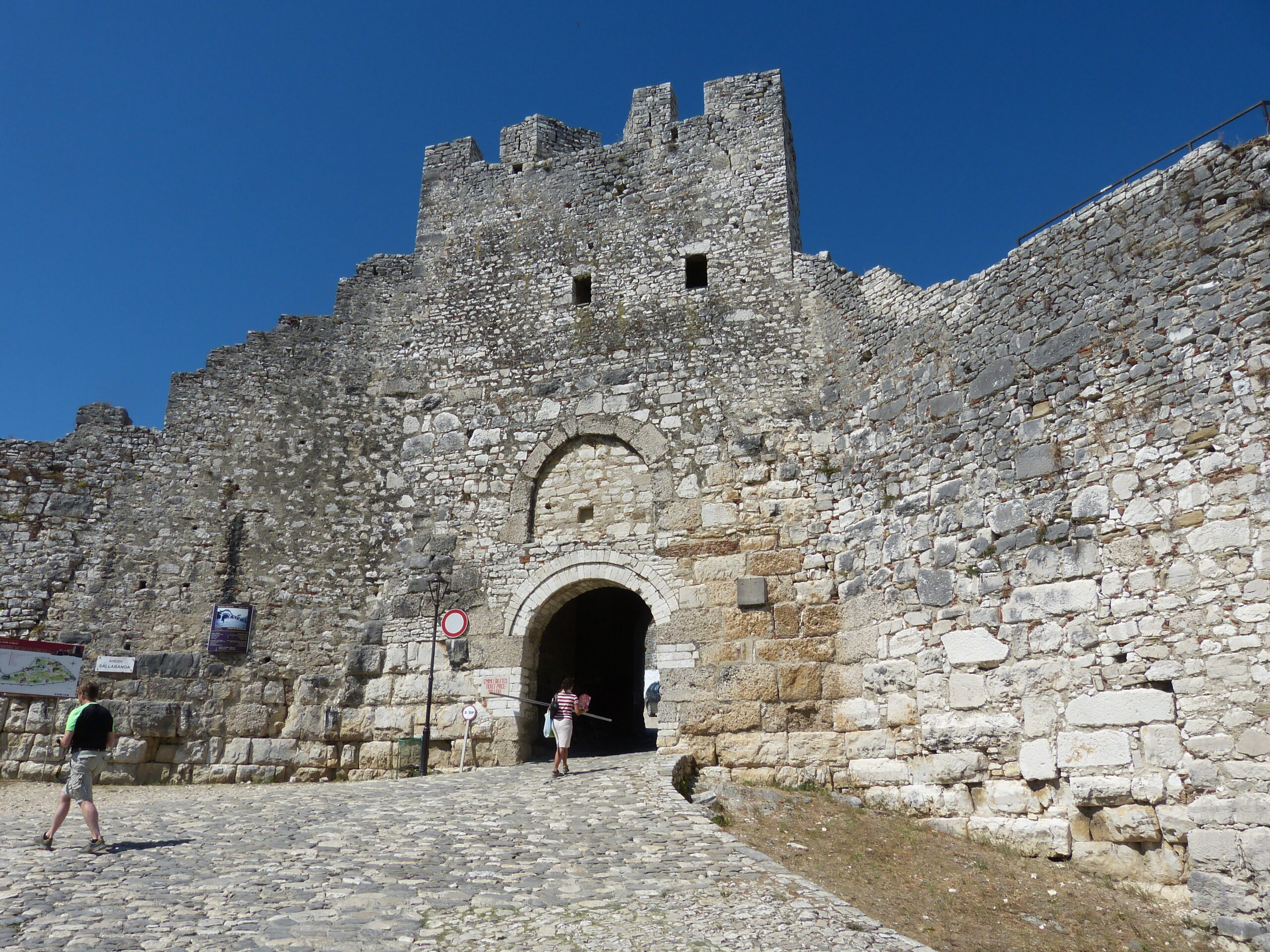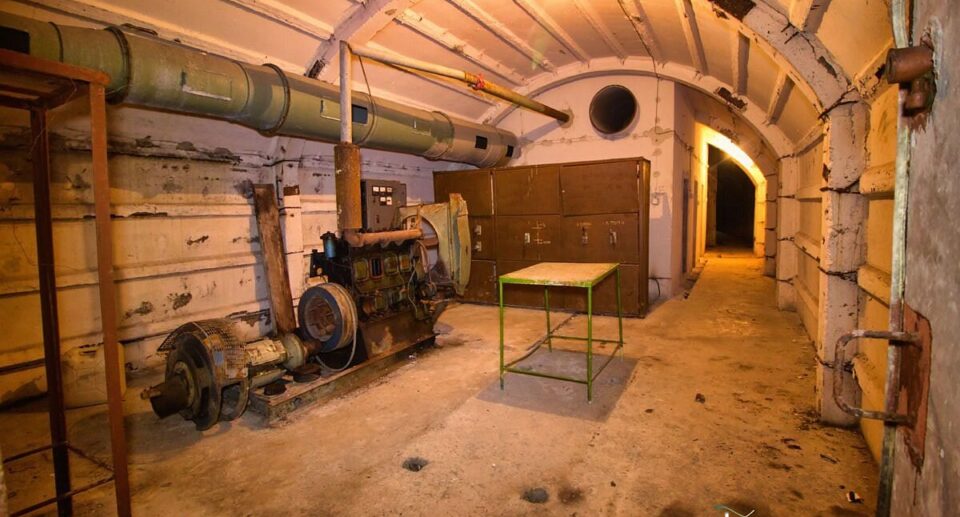Apolloni
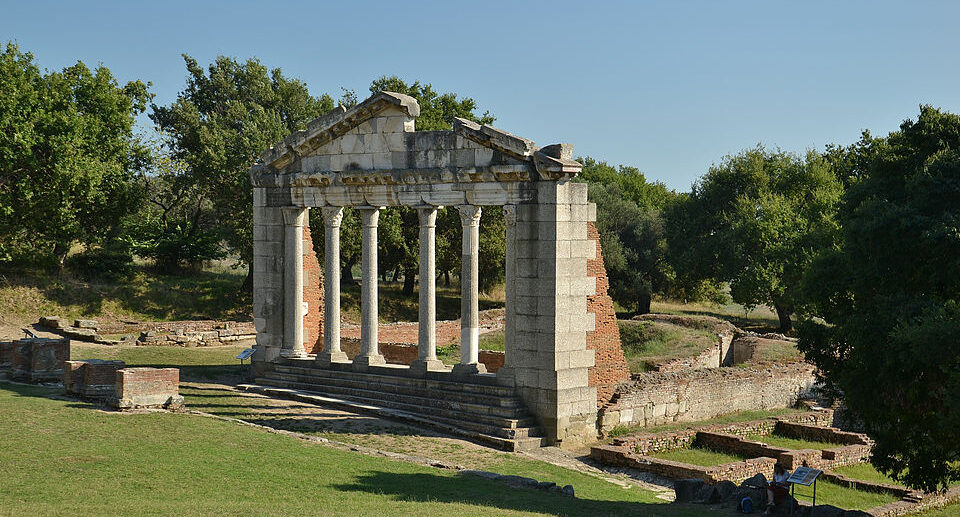
Apollonia (Ancient Greek, Koine Greek: Ἀπολλωνία; demonym: Ἀπολλωνιάτης, Apolloniates; Latin: Apollonia) was an Ancient Greek trade colony which developed into an independent polis, and later a Roman city, in southern Illyria. It was located on the right bank of the Aoös/Vjosë river, approximately 10 km from the eastern coast of the Adriatic Sea. Its ruins are situated in the county of Fier, close to the village of Pojan, in Albania.
Apollonia was perhaps the most important of the several classical towns of the same name. It was founded around 600 BC by Greek colonists from Corinth and possibly Corcyra, who established a trading settlement on a largely abandoned coastal site by invitation of the local Illyrians. Corinthian colonial policy seems to have been relatively liberal, focused on resource extraction for the support of their homeland, rather than exploitation or expulsion of the local Illyrian population. Apollonia gradually gained political independence from Corinth and was organized as a polis under an oligarchic system. Aristotle describes Apollonia’s oligarchy as a small Greek elite class, largely descended from the original colonists, ruling over a largely local Illyrian population.
From the second century BC Apollonia allied itself with the Roman Republic, which maintained a military base there for a time. The city flourished in the Roman period, housing a renowned school of Greek philosophy, rhetoric, and military training which attracted students from across the empire. Augustus, the first Roman emperor, studied at Apollonia in his youth. The city began to decline in the 3rd century AD when its harbor started silting up as a result of an earthquake. It was abandoned in the 4th century AD.
The name of the city is mentioned among the modern bishoprics of the Orthodox Autocephalous Church of Albania (Apollonia and Fier). Apollonia is also a titular see of the Latin Church. The ruins were designated as an archaeological park on 7 April 2003 by the government of Albania.
The settlement was initially known as Gylakeia (Ancient Greek: Γυλάκεια) after its founder, Gylax. Apart from one inscription and a mention by Stephanus of Byzantium there is no other information which has been preserved about him.[11][12] Gylax may have been a tyrant closely linked to the ruling dynasty of Corinthian tyrant Periander. The decision to change the name of the settlement can be possibly dated to the collapse of the Corinthian tyranny when the settlement was possibly refounded as Apollonia by a faction which opposed the Corinthian establishment.[13] The name Apollonia appears in 588 BC and is a reference to Apollo.[14][12][15]
It was one of 24 cities in the Ancient Greek world known as Apollonia. It was distinguished from other cities named Apollonia by being referred to as Ἀπολλωνία κατ᾿ Ἐπίδαμνον (Apollonia kat’ Epidamnon) or Ἀπολλωνία πρὸς Ἐπίδαμνον (Apollonia pros Epidamnon), meaning “Apollonia towards Epidamnos,” in reference to the nearby Greek colony of Epidamnos
